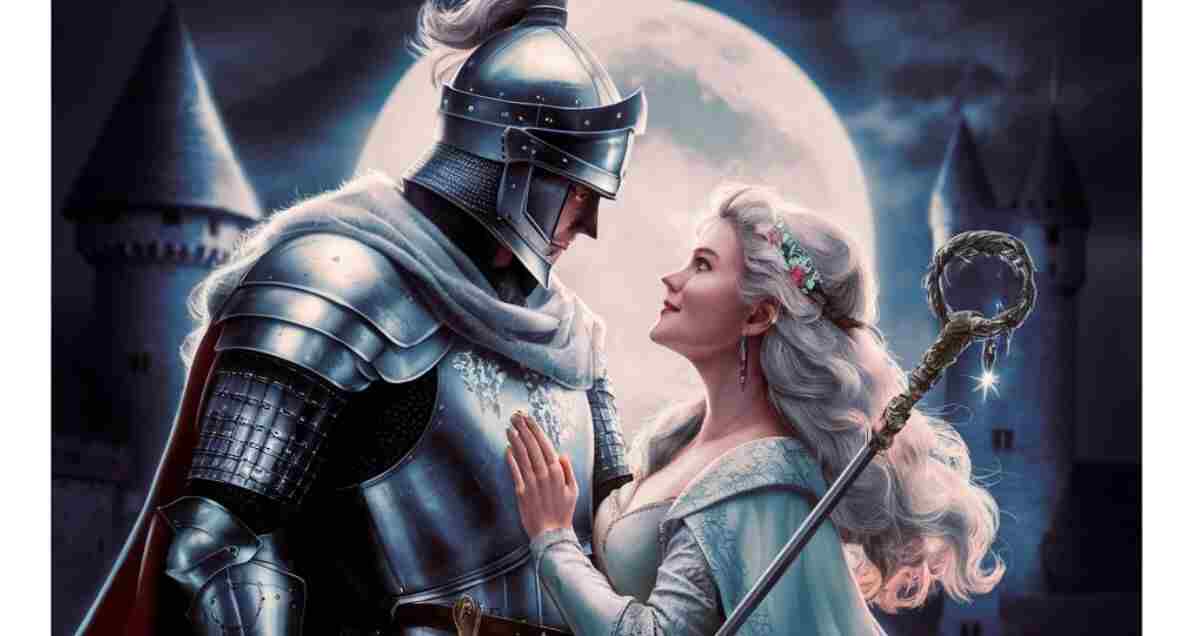The Romantic Recurer Archetype represents a character who relentlessly pursues love, embodying resilience, passion, and hope despite challenges and setbacks.
What keeps us rooting for love’s underdogs? The Romantic Recurer Archetype shows us the beauty of unwavering devotion, proving that love is worth every fight.
Characters of this archetype are driven by an unshakable belief in love’s power, often enduring heartbreak and obstacles to achieve emotional connection and redemption.
The Romantic Recurer Archetype: A Comprehensive Guide

The Romantic Recurer Archetype is a timeless and captivating character type that has appeared throughout literature, film, and art. This archetype represents the persistent lover, someone who repeatedly seeks connection and redemption in matters of the heart, often overcoming challenges, heartbreak, or societal barriers. Whether you’re a writer, artist, or someone intrigued by storytelling, understanding this archetype can deepen your appreciation for its emotional and narrative richness.
In this article, we’ll explore the nuances of the Romantic Recurer Archetype, its historical and cultural significance, examples in media, and practical tips for crafting or identifying this archetype in storytelling.
What Is the Romantic Recurer Archetype?
The Romantic Recurer Archetype embodies the essence of persistent love and unyielding hope. This character often pursues romantic ideals with unwavering determination, regardless of obstacles or repeated failures. They’re defined not by their success but by their resilience and ability to keep loving, even when faced with adversity.
Core Traits of the Romantic Recurer Archetype
| Trait | Description |
|---|---|
| Resilience | Perseveres despite heartbreak or rejection |
| Idealism | Believes in the power and purity of love |
| Passion | Displays intense emotion and dedication |
| Hopefulness | Maintains optimism even in the face of despair |
| Self-Sacrifice | Willing to put others’ happiness above their own |
This archetype is often portrayed as both inspiring and tragic, reflecting the universal human longing for love and connection.
Why Is the Romantic Recurer Archetype So Compelling?
The enduring appeal of the Romantic Recurer Archetype lies in its relatability. Almost everyone has experienced unrequited love, the pain of rejection, or the struggle to maintain a meaningful relationship. These shared experiences make the archetype deeply resonant across cultures and eras.
Emotional Depth
Characters embodying this archetype bring an emotional richness to stories. Their struggles and triumphs invite audiences to empathize and root for them, creating a lasting impact.
Universal Themes
Love, perseverance, and redemption are universal themes that transcend time and culture. The Romantic Recurer Archetype encapsulates these themes, making it a staple in storytelling.
Inspiration and Hope
Despite their setbacks, these characters symbolize hope and the belief that love is worth fighting for. This optimism inspires audiences to embrace vulnerability and resilience in their own lives.
Historical and Cultural Context

The Romantic Recurer Archetype has roots in mythology, folklore, and classic literature. Its iterations reflect societal attitudes toward love and relationships, adapting to the values of each era.
Mythological Roots
In Greek mythology, Orpheus epitomizes this archetype. His journey to the Underworld to rescue his beloved Eurydice highlights his unwavering love, even in the face of impossible odds.
Literary Examples
- Jane Eyre (Charlotte Brontë): Mr. Rochester’s relentless pursuit of redemption and love with Jane mirrors the essence of the Romantic Recurer Archetype.
- The Great Gatsby (F. Scott Fitzgerald): Jay Gatsby’s obsessive love for Daisy Buchanan showcases the archetype’s idealism and eventual tragedy.
Modern Depictions
In modern cinema, characters like Noah Calhoun from The Notebook and Westley from The Princess Bride embody this archetype, captivating audiences with their passion and determination.
Examples of the Romantic Recurer Archetype in Media
Noah Calhoun (The Notebook)
Noah’s unwavering devotion to Allie, despite years of separation and societal barriers, perfectly illustrates the Romantic Recurer Archetype. His persistence reminds viewers of the transformative power of love.
Westley (The Princess Bride)
Westley’s iconic declaration, “As you wish,” symbolizes his boundless love for Buttercup. Even after facing death and hardship, his love never wavers.
Elizabeth Bennet and Mr. Darcy (Pride and Prejudice)
While not a singular embodiment, both Elizabeth and Darcy’s journeys toward love highlight elements of this archetype—particularly their resilience and ultimate triumph over misunderstandings and prejudice.
How to Use the Romantic Recurer Archetype in Storytelling
Creating a compelling Romantic Recurer Archetype requires a nuanced approach. Below are actionable tips to bring this character to life:
Define Their Motivation
Why does the character persist? Whether it’s a deep sense of connection, guilt, or an unshakable belief in love, their motivation should feel authentic and relatable.
Add Layers of Complexity
Avoid one-dimensional portrayals. Give your character flaws, doubts, and moments of vulnerability to make them more relatable.
Show Growth Through Challenges
The Romantic Recurer Archetype thrives on conflict. Show how their experiences shape their character, making them stronger or more self-aware.
Use Symbolism
Incorporate symbolic elements—like letters, shared songs, or recurring locations—to deepen the emotional impact of their journey.
Case Study: The Romantic Recurer Archetype in Film
Case Study: Titanic
Jack Dawson in Titanic serves as a classic example of the Romantic Recurer Archetype. His unwavering love for Rose, despite their class differences and the impending disaster, demonstrates his resilience and idealism.
Key Takeaways
- Emotional Connection: Jack’s selfless acts create a profound emotional bond with the audience.
- Tragic Undercurrent: The inevitability of their separation heightens the story’s emotional impact, making his character unforgettable.
The Romantic Recurer Archetype in Everyday Life
While this archetype is often larger-than-life in stories, its qualities resonate in real-life relationships. People who embody elements of the Romantic Recurer Archetype are often seen as loyal, passionate, and deeply committed.
Real-World Examples
- Partners who work tirelessly to rekindle a struggling relationship.
- Individuals who refuse to give up on love, even after multiple heartbreaks.
Challenges and Pitfalls of This Archetype
While the Romantic Recurer Archetype is compelling, it can also fall into clichés if not handled thoughtfully.
Common Pitfalls
- Unrealistic Persistence: A character who refuses to let go, even when it’s unhealthy, may come across as obsessive rather than endearing.
- Lack of Growth: A static character who doesn’t evolve through their experiences can feel flat and unengaging.
- Over-Reliance on Tragedy: While heartbreak can add depth, overusing it may make the narrative predictable.
Conclusion
The Romantic Recurer Archetype continues to captivate audiences with its blend of passion, resilience, and emotional depth. Whether in literature, film, or everyday life, this archetype embodies the human spirit’s relentless pursuit of love and connection.
Understanding and incorporating this archetype into your storytelling can add a layer of emotional richness that resonates deeply with audiences. So, whether you’re crafting your next novel or analyzing your favorite movie, take a moment to appreciate the timeless allure of the Romantic Recurer Archetype.
Welcome to FashionTrista! I’m David Mark, and I’m excited to share my passion for fashion with you. At FashionTrista, we offer a curated selection of the latest trends, style tips, and fashion advice to keep you ahead of the curve. Whether you’re looking for outfit inspiration or expert guidance, FashionTrista is your go-to resource for all things fashion. Explore with us and redefine your style journey.

